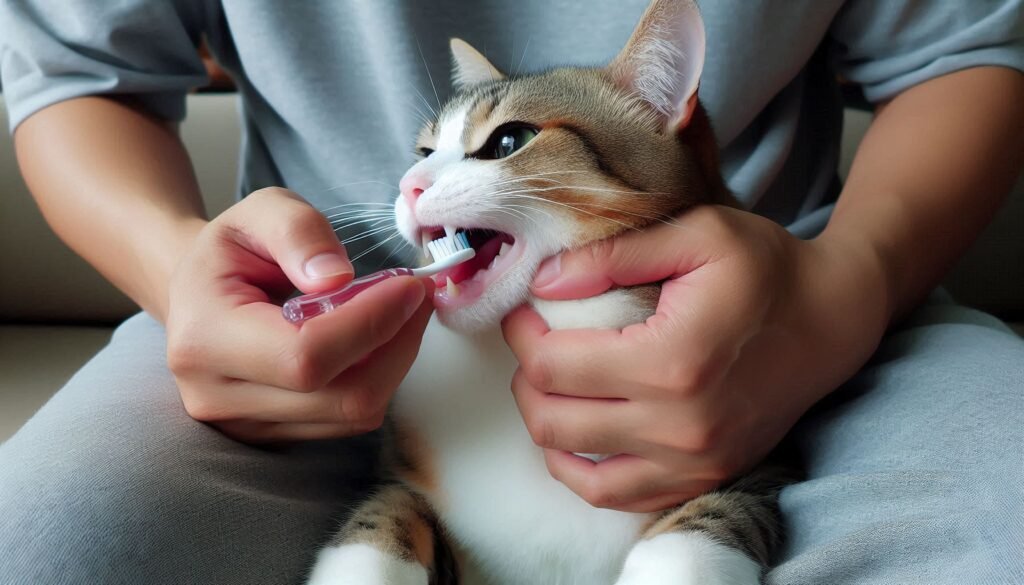How Does Weight Affect a Cat’s Health?
Maintaining a healthy weight is crucial for the well-being of cats. Just like humans, cats can suffer from various health issues due to being overweight or underweight. Understanding the impact of weight on a cat’s health can help pet owners take the necessary steps to ensure their furry friends lead long, healthy lives.

The Dangers of Overweight Cats
Diabetes Mellitus
Overweight cats are at a higher risk of developing diabetes mellitus. Excess fat can cause insulin resistance, making it difficult for the body to regulate blood sugar levels. Symptoms include increased thirst, frequent urination, and weight loss despite an increased appetite.
Joint Problems and Arthritis
Extra weight puts additional stress on a cat’s joints, leading to discomfort and the development of arthritis. Cats may become less active and reluctant to move, which can further exacerbate weight gain and joint issues.
Heart Disease
Obesity in cats can lead to heart disease, including conditions like hypertension and congestive heart failure. Maintaining a healthy weight helps ensure that the heart does not have to work as hard, reducing the risk of cardiovascular problems.
Respiratory Issues
Excess weight can lead to breathing difficulties. Overweight cats may have trouble getting enough oxygen, especially during physical activity. This can result in decreased stamina and a reluctance to play or exercise.

Liver Disease (Hepatic Lipidosis)
Overweight cats are at risk of developing hepatic lipidosis, a severe liver condition. When an overweight cat suddenly stops eating, fat can accumulate in the liver, leading to liver failure. This condition requires immediate veterinary attention.
The Risks of Underweight Cats
Nutritional Deficiencies
Underweight cats may not be getting the necessary nutrients from their diet. This can lead to a weakened immune system, making them more susceptible to infections and illnesses.
Muscle Wasting
A lack of proper nutrition can result in muscle wasting. Cats may become weak and have difficulty performing everyday activities. Ensuring a balanced diet helps maintain muscle mass and overall strength.
Organ Failure
Severe underweight can lead to organ failure. The body may start breaking down its own tissues to obtain energy, which can have devastating effects on vital organs like the kidneys and liver.
Poor Coat Condition
Underweight cats often have dull, dry, or thinning coats. This can be a sign of malnutrition and poor overall health. A healthy weight contributes to a shiny, thick coat, which is an indicator of good health.

Increased Susceptibility to Cold
Cats with low body fat are more vulnerable to cold temperatures. They may have difficulty maintaining body heat, leading to discomfort and potential health issues during colder months.
The Importance of Regular Dental Check-ups: Preventing Major Oral Health Issues
Caring for the health of teeth is very crucial to one’s health of the body….
Is Social Media Bad for Mental Health?
Is Social Media Bad for Mental Health? Exploring the Impact on Well-Being Social media has…
Probiotics Specially Designed for the Health of Your Teeth and Gums
Brand New Probiotics Specially Designed For TheHealth Of Your Teeth And Gums Try ProDentim: a unique…
The Health Benefits of Daily Coffee Consumption: Boost Your Focus, Mood, and More
Introduction: Coffee can be described as one of the most popular beverages in the globe,…
Top 5 Amazon Coffee Makers for Perfect Brews: Discover Your Ideal Coffee Machine
offee occupies an important place in many people’s lives, it is not only drink which…
Top 5 Best Coffee Shops in New York for a Perfect Coffee Date
When it comes to choosing the perfect coffee shop for a romantic coffee date in…
Maintaining a Healthy Weight for Your Cat
Balanced Diet
Providing a balanced diet is key to maintaining your cat’s weight. Consult with your veterinarian to choose the right food and portion sizes based on your cat’s age, activity level, and health status.
Regular Exercise
Encourage regular exercise through play and interactive toys. Physical activity helps burn calories and keeps your cat’s muscles and joints in good condition.
Regular Vet Check-ups
Regular veterinary check-ups can help monitor your cat’s weight and overall health. Your vet can provide guidance on weight management and address any potential health issues early on.
Avoid Overfeeding
Avoid overfeeding and be mindful of treats. Measure your cat’s food portions and stick to a feeding schedule to prevent unnecessary weight gain.

Monitor Weight Changes
Keep an eye on your cat’s weight and body condition. Sudden weight changes can indicate underlying health problems and should be addressed by a veterinarian.
Maintaining a healthy weight is vital for your cat’s well-being. By understanding the risks associated with being overweight or underweight, you can take proactive steps to ensure your cat lives a long, happy, and healthy life.
-
Brown Wooden Cat House | Dog House
Original price was: ₨ 16,499.₨ 11,999Current price is: ₨ 11,999. -
Candy Jar | Handmade Wooden Candy Jar | Pakistani Handicraft Nakashi Candy Jar
Original price was: ₨ 4,449.₨ 3,999Current price is: ₨ 3,999. -
Cat House | Brti Cat House | Indoor Puppy House | Pet House
Original price was: ₨ 30,000.₨ 28,499Current price is: ₨ 28,499.
FAQs
1. How can I tell if my cat is overweight or underweight?
You can tell by feeling your cat’s ribs and observing its body shape. If you can easily feel the ribs without pressing hard, your cat is likely at a healthy weight. Consult your veterinarian for an accurate assessment.
2. What is the ideal weight for a cat?
The ideal weight varies depending on the breed and size of the cat. Most domestic cats weigh between 8 to 10 pounds, but it’s best to consult your vet for a personalized recommendation.
3. How often should I weigh my cat?
Regular monitoring is important. Weigh your cat once a month and keep a record. If you notice significant changes, consult your veterinarian.
4. Can I put my overweight cat on a diet?
Yes, but it should be done gradually and under veterinary supervision. Rapid weight loss can lead to serious health issues like hepatic lipidosis.
5. What are the best exercises for cats to lose weight?
Interactive play with toys, laser pointers, and climbing structures can encourage physical activity. Short, frequent play sessions are often more effective than longer, infrequent ones.












